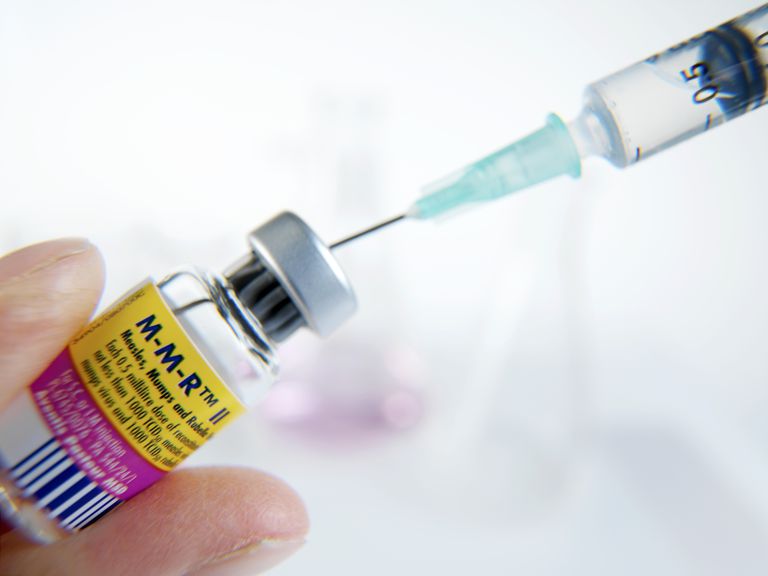Vaccines– A Shot Worth Taking?
Measles was “eliminated” in 2000. This meant that it was no longer common in the United States due to the country’s powerful vaccination methods.
The Centers for Disease Control and Prevention is saying that the United States now has the highest number of measles cases in a year since the elimination of measles in 2000, with nearly 700 measles cases reported in 22 separate states already this year. Public health officials have declared a measles outbreak in the Los Angeles county, making it the most recent area to be plagued with the illness.
Recently, the outbreak on the University of California Los Angeles campus warranted 129 students to be quarantined for up to 7 days. It is reported that the student that originally contracted measles attended classes for 3 days while contagious.
The Department of Public Health stated that 183 California State University Los Angeles students are under individual quarantine with another 445 under a blanket quarantine. An individual with measles reportedly spent time in the campus library while infectious.
The Los Angeles International Airport has had 3 recent measles scares in just the past 2 months.
California vaccination rates are typically high in California, with a current 68.6% of Californians up-to-date with their vaccinations. However, illnesses can easily spread to those with suppressed immune systems, children, and those that are unvaccinated. One singular case of measles can quickly accelerate into an outbreak. People who have contracted measles often seek medical attention in a hospital, where it can easily transfer to other patients. This includes patients like the elderly, who often take medication that can compromise their immune system, or highly vulnerable infants that cannot be vaccinated against measles until the age of one.
But some parents decide to never vaccinate their children at all, despite the medical recommendations to do so. Some parents refuse to immunize their children due to religious reasons.
Others say that by not vaccinating their children, they are strengthening their immune systems, and it will be beneficial in the long run. They hold the belief the vaccinations are not treating any prevalent diseases and are unnecessary. They express that the possible negative effects heavily outweigh the positives. It is preferred that they do not put additional chemicals into their children’s bodies and that healthy diets and lifestyles will be sufficient to prevent the children from diseases.
Lastly, the potentially greatest reason parents refuse vaccinations is out of safety concerns. These concerns are rooted in the media or information spread by acquaintances. The television, radio, internet, friends and family constantly flood parents with other people’s opinions on vaccinations. This makes it overwhelming and difficult to make a well-informed decision. Many of these reports are exaggerated to evoke higher ratings. There is a focus on rare incidents in which a children suffer from negative effects of a vaccines. The media mentions issues with the elements of certain vaccines. They claim that the vaccines can cause autism, brain damage, or even behavioral difficulties. These accounts breed fear in parents who overestimate the danger of vaccines. Many of these parents maintain that the side effects vaccines may cause are more substantial than what doctors, scientists, and other experts report.
But, immunization saves lives. Advancements in medical science can protect children from more diseases than ever. Some diseases that once killed thousands of children have been completely eradicated, while others are close to elimination. For example, Polio was once America’s most-feared disease. It caused death and paralysis, but, due to vaccination, it is no longer a threat to the country.
Since the year 2010, there have been between 10,000 to 50,000 reported cases of whooping cough. This is a vaccine-preventable disease. Before this vaccine was available, 8,000 babies died each year while victim to whooping cough. But as the vaccine has been introduced, this number has been reduced to a mere 10 to 20 babies each year.
Immunizations also protect the future generations from harm. They have reduced, and, in some cases, completely eliminated diseases that once killed and or severely disabled people only a few generations back. Children no longer need to get vaccinated for smallpox because the vaccination eradicated it worldwide. Those that are vaccinated against rubella, also known as German measles, the risk that pregnant women will pass the virus on to their children is lessened substantially while birth defects associated with it are no longer observed. If vaccinations continue, future parents will be assured that some of the illnesses of today may not even be around to impair their children.
Vaccinations are beneficial, despite what some may say. This has been proven by many scientists repeatedly. However, some people are not willing to accept the fact that their children will be better off with an immunization and we must continue to work and fight that stigma in order to successfully fight diseases that dramatically harm the health of our communities.
Your donation will support the student journalists of The Tower and John Adams High School. Your contribution will allow us to purchase equipment and cover our annual website hosting costs.

Vanshika Dixit is a senior in the vigorous full IB program and current serves as Co-Editor-in-Chief for the Tower. Originally born in New Delhi, she moved...







